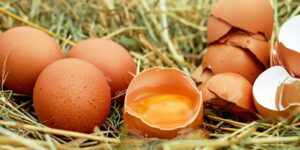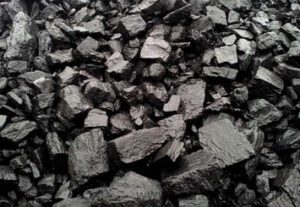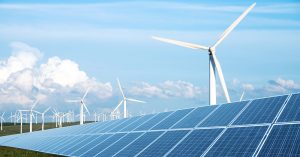
Ovostar Union agro-industrial group of companies, one of the leading producers of eggs and egg products in Ukraine, in January-March 2022 received $ 16.44 million in net loss against the Russian military invasion against $ 4.72 million in net profit in the first quarter of 2021, according to the message of the agrarian group on the Warsaw Stock Exchange on Tuesday.
“The egg processing plant in Makarov (Bucha district, Kyiv region) was temporarily shut down until the city was deoccupied by Ukrainian troops in late March. A subsequent inspection of the plant revealed signs of uncritical damage to administrative and industrial buildings … Management expects to resume the operation of the plant after the completion of repair work in the premises, “the company said in a report on the consequences of the Russian invasion.
Ovostar’s revenue in the first quarter of 2022 decreased by 13.7% compared to January-March 2021 – to $ 27.71 million. The gross loss of the group of companies in the first quarter of this year amounted to $ 13.38 million against $ 6.91 million gross profit in January-March 2021, also for this period it received $ 15.67 million in operating loss against $ 4.37 in operating profit last year.
In the structure of Ovostar’s revenue, 75% was accounted for by egg sales ($ 20.8 million), of which 87% ($ 18.1 million) accounted for sales in Ukraine. The egg products segment generated 25% of the agroholding’s revenue ($ 6.8 million), with 58% of its sales ($ 3.93 million) in the domestic market.
“The main sales channel of the egg segment is large national retail chains. Geographically, sales are concentrated in the central part of the country, and the share of sales in the most affected regions does not exceed 10%. Market losses in the east and south where a large number of internally displaced persons temporarily reside, “the Ovostar report said.
The document states that the assets of the agricultural holding as of March 31, 2022 decreased compared to December 31, 2012 by 18.3% to $ 115.3 million, its long-term debt decreased by 1.8 times to $ 5.8 million, and current growth – by 1% to $ 14.5 million
“Since the beginning of the Russian military campaign, the group has faced significant obstacles to export activities due to serious logistics disruptions. In particular, the blockade of the port of Odessa blocked access to Middle Eastern markets, where goods were shipped by sea. after the company was issued a special license, “the egg producer said in a statement.
Ovostar also noted its dependence on imports of certain feed additives, vaccines and spare parts for equipment, which are included in the list of critical imports and are imported into Ukraine without restrictions. The management is also looking for adequate substitutes for imported supplies on the Ukrainian market.
According to the report, as of March 31, 2022, Ovostar Union shares were owned by: Prime One Capital Limited (67.93%), controlled by Ovostar CEO Boris Belikov and Chairman of the Board Vitaly Veresenko; Generali Open Funds Emergency Fund (10.39%), Fairfax Financial Holdings Limited (10.39%), Aviva Open Funds Emergency Fund (5.02%).
Ovostar Union Group is a vertically integrated public holding company, one of the leading producers of chicken eggs and egg products in Europe. The manufacturer is a certified exporter to EU countries since 2015.
The group’s holding company is Ovostar Union N.V. in mid-June 2011 held an IPO of 25% of the shares on the Warsaw Stock Exchange and raised $ 33.2 million. The majority stake in the company is owned by Prime One Capital Limited, which is controlled by its CEO Boris Belikov and Chairman of the Board Vitaly Veresenko.

For the oxygen needs of patients with COVID-19, some 35 oxygen producers have been involved, including 23 medical and 12 technical oxygen producers, Minister of Health of Ukraine Viktor Liashko has said.
“Today, not a single patient, not a single hospital in the country is left without oxygen. Yes, in certain hospitals and regions there is increased demand for oxygen, but it is controlled and issues are resolved promptly and in a team,” he said at a briefing on Thursday.
Liashko said that Ukraine is currently at its maximum values in terms of the daily number of new cases, hospitalizations and deaths. Thus, 47,380 patients with a diagnosis of COVID-19 were hospitalized.
Currently, 480 hospitals provide medical care to patients with COVID-19, they have more than 70,000 beds for patients with COVID-19, of which more than 66,000 are with oxygen. Patients with COVID-19 or with suspected disease occupy 67% beds.
At the same time, Liashko noted that the actual occupancy of beds with oxygen by patients in need of oxygen therapy is 50%. “The situation is uneven, and 46 out of 480 hospitals [about 10%] have oxygen beds already 100% occupied, and 193 [about 40% of hospitals] have the oxygen bed occupancy at 75%. The remaining 60% of clinics are without critical load,” he said.

The majority of cement producers in Ukraine are forced to work with minimum margins due to the rise in coal prices by more than two times, the Ukrcement association has reported.
“The price swing for coal this year did not pass us by. The supply contracts were signed last year at an average price of $60 per tonne, and in August, suppliers agreed to ship coal at a price of at least $175 per tonne. This creates significant pressure on the pricing policy. It is impossible to make cheap goods out of expensive components,” Chairman of the Ukrcement association Pavlo Kachur said in an interview with Interfax-Ukraine.
According to him, the cost of energy is 52-55% of the cost of clinker required for cement production. At the same time, all Ukrainian cement plants have previously been modernized and switched to coal due to the high price of gas.
The situation with the rise in prices for cement in Ukraine due to the rise in prices for coal is not unique and is observed in the markets of other countries, Kachur said.
“For example, Turkish cement producers sharply raised cement prices in July due to the rise in the cost of coal. We proceeded from the fact that we must take into account the needs of consumers. Therefore, some companies significantly minimized margins in order to go through this difficult period with minimal costs for cement plants and the construction market as a whole,” he said.

The National Association of Sugar Producers of Ukraine Ukrtsukor appealed to Minister of Economy Oleksiy Liubchenko with a request not to support the initiative of the Cabinet of Ministers to permit duty-free import of 120,000 tonnes of sugar until October 1, 2021. According to an appeal to the minister, published on the association’s website, the Ukrainian sugar industry is able to fully meet the needs of the domestic market, since as of June 1, sugar stocks in the warehouses of manufacturing plants amount to 300,000 tonnes, excluding stocks of agricultural producers, retail chains and the population. At the same time, according to Ukrtsukor, the average monthly sugar consumption in Ukraine is 80,000 tonnes.
“In addition, at the beginning of 2021, some 40,000 tonnes of white sugar were imported. Also in May 2021, Ukraine imported 60,000 tonnes of raw sugar from Brazil for industrial processing at two sugar factories into white sugar, and another 27,000 tonnes of raw sugar are already on the way to Ukraine and will be delivered by the end of June,” the association said in the appeal to the minister.
The above supplies, according to Ukrtsukor, will meet the domestic demand for sugar by the new season.
The association noted that in 2021 in Ukraine, the area under sugar beet crops increased compared to last year, which, together with favorable weather conditions, makes it possible to expect a sufficient yield of sugar beet. In turn, this will contribute to the full supply of the domestic market with sugar in the 2021/2022 marketing year (MY), as well as a possible decrease in sugar prices at the end of August 2021 with the beginning of the sugar making season.
As reported, the Cabinet of Ministers in June proposed to permit duty-free imports of 120,000 tonnes of sugar until October 1, 2021 in order to stabilize the situation in the market for this product.

The Verkhovna Rada intends to reduce the rate of excise tax on beer to UAH 1.39 per liter from UAH 2.78 per liter for producers whose annual production volume does not exceed 200,000 hectoliters, as well as introduce the term “small beer producers.”
At a plenary session of parliament last week 284 MPs with the required minimum of 226 votes backed bill backed at first reading No. 5118 on amendments to Article 215 of the Tax Code of Ukraine.
According to an explanatory note to the document, there are 204 breweries in Ukraine with an annual production volume of up to 3,000 hectoliters, which pay UAH 30,000 per year for a wholesale beer trade license, and 28 breweries with a production volume of up to 200,000 hectoliters (for their annual license is UAH 500,000).
These companies account for 13% of the beer market in Ukraine, while the remaining 87% is divided among nine large beer producers. According to the document, the total tax burden per 1 liter of beer produced by small producers is significantly higher than the same indicator at the enterprises of the beer giants.
In addition, the authors of the bill said that all small beer producers are under significant regulatory and financial pressure, since they pay other tax payments along with the excise tax. In this regard, the reduction in the excise tax rate is proposed.
The bill will determine the entities of applying the reduced rate by introducing the term “independent small brewery” – an enterprise legally and economically independent from any other brewery, geographically located separately from other breweries.
According to the explanatory note, the bill brings the tax legislation of Ukraine closer to the EU legislation, complies with the EU Council Directive 92/83/EEC on the harmonization of the structures of excise duties on alcohol and alcoholic beverages dated October 19, 1992.
As expected, the implementation of bill No. 5118 will result in a decrease in annual budget revenues by UAH 328.3 million due to a decrease in excise tax rates on beer. At the same time, in the long term, due to the expected growth in beer production by about 20 million liters, the budget will be significantly replenished with tax receipts in the form of excise tax, single social security contribution, personal income tax, etc.

The Cabinet of Ministers of Ukraine on Wednesday, June 10, signed the Memorandum of Understanding (MoU) on resolving problematic issues in the field of renewable energy, the government has reported.
“According to the document, renewable energy producers accept the terms of voluntary restructuring of feed-in tariffs, which provides for their reduction. In particular, for all solar electric power facilities the tariffs will be reduced by 15%, for facilities generating electricity from wind – by 7.5%,” the government said in a statement on its official website on Wednesday evening.
Ukraine is committed to determining and approving annual quotas for supporting green energy and is providing auctions for the distribution of such quotas.
According to the terms of the memorandum, the responsibility of renewable energy producers is toughened.
From August 1 of this year, new solar power plants with a capacity of more than 1 MW can be launched with government support only by participating in auctions.
“We are in favor of building green energy and, over time, such energy will be more widely distributed as the cleanest. But it is important for us how much it will cost. If the price of electricity produced at new solar power plants is determined at an auction, it will not be high tariff,” Prime Minister of Ukraine Denys Shmyhal said.